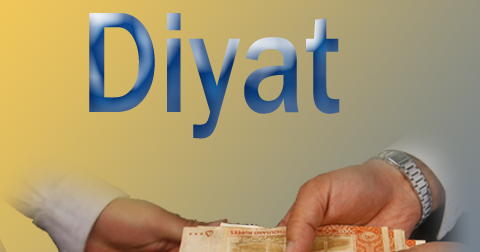What is Diyat? A Simple Guide to Understanding Its Role
From Ancient Roots to Modern Practice: The Essence of Diyat in Pakistan

Diyat, a term often heard within the legal and social spheres of Pakistan, carries significant weight, but what does it truly signify? In this article, we delve into the meaning, relevance, and practical application of Diyat.
1. What is Diyat?
Diyat, derived from Arabic, translates to ‘ransom’ or ‘compensation’. In the context of Islamic jurisprudence, particularly in countries like Pakistan, it refers to the financial compensation paid to a victim or the heirs of a victim. This compensation is primarily applicable in cases of homicide, bodily injury, or other harm.
2. Historical Roots
The concept of Diyat is deeply rooted in Islamic traditions. During the early days of Islam, it was introduced as a means to provide justice and maintain peace within society. Instead of seeking revenge, aggrieved parties were offered a form of compensation, ensuring that justice was served without further bloodshed.
3. Legal Foundation in Pakistan
In Pakistan, the concept of Diyat is legally entrenched within the Pakistan Penal Code under Section 323. Every year, the federal government announces a specific value for Diyat, typically anchored to the value of silver. This amount acts as the benchmark for compensation in relevant cases throughout the year.
4. Application and Purpose
Diyat serves multiple purposes:
- Justice for Victims: It ensures that victims or their families receive due compensation for their losses or sufferings.
- Alternative to Retribution: Instead of perpetuating a cycle of violence, Diyat provides an alternative route to settling disputes, promoting societal peace.
- Deterrence: By fixing a substantial amount as Diyat, it acts as a deterrent, potentially discouraging crimes that may lead to such compensations.
5. Modern Day Relevance
Today, Diyat remains a crucial aspect of the Pakistani legal landscape. Each year, when the government announces the Diyat value, it’s reflective of current economic realities and societal valuations of life and property.
However, the system isn’t without its critics. Some argue that affixing a monetary value to human life can be problematic, while others believe it may inadvertently enable the wealthy to evade more stringent legal consequences.
6. Comparisons with Global Practices
While the term ‘Diyat’ is specific to Islamic jurisprudence, similar concepts exist worldwide. In many legal systems, there are provisions for compensating victims, whether it’s through insurance, restitution, or other financial reparations. However, the deeply religious and cultural grounding of Diyat sets it apart.
Conclusion
Diyat, while a complex and multifaceted concept, remains a testament to the blend of traditional Islamic principles with modern legal frameworks in Pakistan. As the country evolves, so does the discourse around Diyat, reflecting changing societal norms and values. Whether one views it as a just means of compensation or a topic of debate, its significance in Pakistani society is undeniable.
